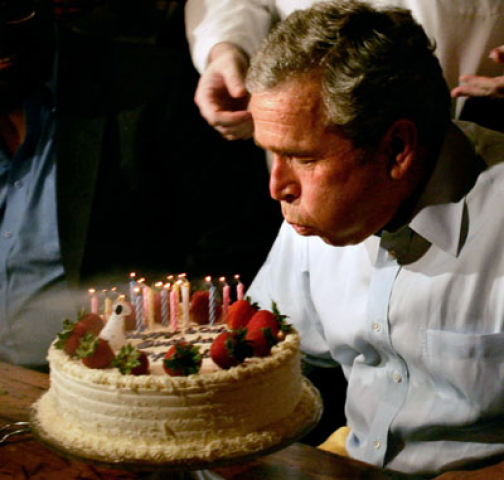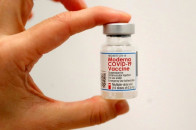Blowing out candles on birthday cakes boost frosting bacteria by 1400%
Our mouths are packed with bacteria, most of them are not harmful

Former US president George W Bush blows out candles on his 60th birthday. PHOTO: REUTERS
Titled “Bacterial Transfer Associated with Blowing Out Candles on a Birthday Cake”, the study was conducted by a team of professors and undergraduate students from Clemson University in South Carolina, United States.
5 reasons why you should eat with your hands
Speaking to The Atlantic, lead author of the study, Paul Dawson credits his teenage daughter for the idea and often engages his students in original scientific research. Dawson has previously conducted food safety studies on common practices like sharing foods, double dipping [sauces] et al.
For the study, Dawson and his team started with frosting a piece of foil atop a cake – cake-shaped styrofam base then stuck and lit candles and blew on them after taking a bite from a pizza. “We also wanted to simulate a birthday party,” said Dawson. “We thought it might help the salivary glands get going.”
“You have one or two people who really for whatever reason... transfer a lot of bacteria,” he added.
Using classic method to calculate bacteria, researchers diluted frosting with sterile water, spread it out on agar plates to let bacteria grow. Each colony that grew on the agar plates represented one original bacterial cell from the frosting. [Not all bacteria grow on agar plates – there are other sophisticated ways to count bacteria cells comprehensively.]
While the team expected a high number of bacteria, Dawson said he was surprised how it varied from blow to blow. The amount of bacteria increased by 14 times on average, but in some cases it went up to 120 times. “Some people blow on the cake and they don’t transfer any bacteria. Whereas you have one or two people who really for whatever reason ... transfer a lot of bacteria,” explained Dawson.
The danger associated with refilling plastic bottles
However, Dawson insists the findings should not ruin birthday parties. “It’s not a big health concern in my perspective,” he said. “In reality if you did this 100,000 times, then the chance of getting sick would probably be very minimal.”
Our mouths are packed with bacteria – most of them are not harmful. He argued that if birthday cakes significantly contributed to spread deadly disease, it would’ve already been discouraged by now. He added that it would be common sense to avoid a slice from a cake on which a clearly sick person had blow on to.
This article originally appeared on The Atlantic.



















COMMENTS
Comments are moderated and generally will be posted if they are on-topic and not abusive.
For more information, please see our Comments FAQ